Dr Jekyll And Mr Hyde (1931)
Directed by: Rouben Mamoulian
Written by: Percy Heath, Samuel Hoffenstein
Starring: Fredric March, Holmes Herbert, Miriam Hopkins, Rose Hubert
HCF may be one of the newest voices on the web for all things Horror and Cult, and while our aim is to bring you our best opinion of all the new and strange that hits the market, we still cannot forget about our old loves, the films that made us want to create the website to spread the word. So, now and again our official critics at the HCF headquarters have an urge to throw aside their new required copies of the week and dust down their old collection and bring them to the fore…. our aim, to make sure that you may have not missed the films that should be stood proud in your collection.
HCF REWIND NO.75. DR JEKYLL AND MR HYDE [1931]
AVAILABLE ON DVD
RUNNING TIME: 96 mins
In Victorian London, Dr. Henry Jekyll, who devotes much of his time to working in a charity hospital for the poor, gives a speech saying that within every person lurks impulses for both good and evil, and that if these impulses were separated, the good side could reach heights only dreamed of before. Jekyll is engaged but is disappointed when Muriel Carew’s father refuses to move up their wedding date. That evening, he saves prostitute Ivy Pearson from an attacker and, as he sees to her wounds, is attracted to the very available woman. Though he fights off temptation, things get worse when Muriel and her father go on a lengthy holiday. The frustrated Jekyll develops the drug which will release the evil side in himself, and in doing do frees My Hyde……..
Robert Louis Stevenson’s 1886 novella The Strange Case Of Dr Jekyll And Mr Hyde is one of the most adapted books ever, with a total of 123 film and TV versions dating from the earliest days of cinema to the fairly recent series Jekyll, while it has inspired countless other stories and characters; who is Bruce Banner but a variant of Dr Jeykll? It’s easy to see why Stevenson’s concept of the duality of man is so popular, though interestingly very few versions retain the book’s structure of a mystery which is then explained via a letter left by the dead Dr Jekyll. Only three cinematic adaptations have really become classics; the 1920 silent version starring John Barrymore in the dual title role, the 1941 Spencer Tracy effort, and this 1931 film which in my opinion is easily the best film. It’s one of the highpoints of that incredible period, the early 30’s, where a group of superb horror pictures were made which still amaze today with their imagination, their audacity and their sheer filmmaking craft, such as Frankenstein, The Mummy, The Island Of Lost Souls, Freaks and King Kong. Dr Jekyll and Mr Hyde is a very innovative piece of cinema for its time and is also extremely adult in a way that will probably surprise many first-time viewers. And, in its own way, it’s still very frightening.
This version of Dr Jekyll And Mr Hyde was clearly put into production because of the huge success of Universal’s Dracula and Frankenstein. Paramount actually asked John Barrymore to reprise his 1920 role, and thereafter it seems that director Rouben Mamoulian had a considerable amount of freedom with the film, turning down studio head Adolph Zukor’s suggestions and finally casting Fredric March against his wishes, March being mainly known for light roles. Poole, Jekyll’s butler, was played by Edgar Norton who had played the role many times on stage since 1898 and Stevenson’s nephew apparently appears in one scene though I’ve never been able to tell where. The script by Samuel Hoffenstein and Percy Heath was actually not based so much on the novel but on a 1887 stage version which introduced elements which soon became features on most successive adaptations [i.e.Jekyll’s fiancée and Hyde’s prostitute girlfriend], and also the ‘20 film which introduced a sexual aspect to proceedings, something which the ’31 movie took to the next level. Made just before the Production Code seriously restricted things like sex and violence, Dr Jekyll and Mr Hyde only had one scene cut initially – Hyde trampling a young girl, which actually happened in the book – but later reissues chopped the film down considerably, not only losing some of the scenes featuring Ivy but other important footage including one transformation.
The fools even cut the film’s stunning opening scene which is filmed in the first person. We assume the point of view of Jekyll as he plays the organ, gets ready for his lecture and travels by carriage to the hall. We briefly see Jekyll in a mirror, but not properly until a minute or so later. Such audacious stuff was clearly considered too odd for audiences for many decades, though it’s possible that wasn’t the only reason. Due to MGM buying the rights to and virtually burying the film when their 1941 version came out, this superior earlier version was almost impossible to see in a coherent and good-looking print for many decades. The first version I saw was of one of these butchered versions and the film just didn’t flow though its quality was still obviously evident. It was only when MGM relinquished the rights after 45 years that efforts were made to restore it. Even viewing the fully restored version, you have to accept some things that were common in films of the time, such as cringe-worthy romantic dialogue and far too much obvious make-up on some cast members; the quality of the DVD enables us to see that star March is clearly caked in it. That’s the way things were done back then though, what are now seen as dated flaws were once the norm. What Dr Jekyll and Mr Hyde most certainly doesn’t have is the staginess of most early 30’s films.
Oh no, it certainly doesn’t. The camera moves fluidly, great effort has been made to film even dialogue scenes in an interesting way from unusual angles to strange compositions such as objects looming large in the foreground, some scene transitions are accomplished by split screen etc. Jekyll’s first transformation is shown at first from inside his head, with the camera whirling around the room as certain incidents from earlier are replayed in his mind. The actual change is amazing even by today’s standards [actually it’s possibly better]. The usual method of rapid dissolves of the time was replaced by a cleverer technique which was a secret for many years until Mamoulian himself revealed it. Wally Westmore’s make-up was applied in contrasting colours and then a series of coloured filters that matched the make-up was then used which enabled the make-up to be gradually exposed or made invisible, the change in colour of course not being visible on the black-and-white film. The actual make-up, very simian in a way designed to evoke primitive man, is perhaps a little excessive to modern eyes but March acts the change in a way that is almost painful to watch. We almost think we are physically seeing somebody emerge out of someone else, Look at the way Hyde is initially awkward and has to adjust to his surroundings like a newborn. Horror films are usually ignored during the Oscars, but at least March’s astounding, horrifying yet richly nuanced performance was rightly rewarded with a win for Best Actor.
It’s easy to see why this film was heavily cut after its initial release, because it is as much about sex as the good and evil in mankind, introducing a huge amount of blatant and sometimes downright perverse sexuality into Stevenson’s tale. Jekyll is clearly sexually frustrated by not being allowed to marry Muriel as quickly as he wants [in the days, of course, when it wasn’t customary for a ‘respectable’ man to sleep with his wife until marriage]. When he meets Ivy, he is clearly attracted to her, and their first meeting has an amazing erotic charge as she lies under a sheet fully naked [and you can even make out certain, um, features!] and blatantly ‘comes on’ to Jekyll. Being the ‘respectable’ guy he leaves, though the camera dwelling on Ivy’s leg swinging erotically clearly shows us what it on his mind. When told the news that Muriel and her father are leaving for their extended holiday, Poole, Jekyll’s butler tells him that London has ‘diversions’ for a man if he wants them. Not wanting a man of his position to be seen in seedy locales, Jekyll takes his potion, thereby allowing himself, in the form of Mr Hyde, to have all the illicit fun that as Jekyll, he clearly wanted but felt unable to go and have.
When Hyde finds Ivy and shacks up with her, we are treated to a really disturbing portrayal of a brutal relationship, one of those terrible arrangements where the woman is even scared to get help and is totally trapped. Ivy is terrorised by Hyde in scenes which is horrifying to watch and suggest all manner of nastiness. We find out that Hyde whips her, but are left in no doubt that it certainly isn’t all he does; rape is certainly suggested. When Hyde says to her; “If you do one thing I don’t approve of while I’m gone, the LEAST little thing, mind you… I’ll show you what horror means”! , he is truly frightening. Dr Jekyll And Mr Hyde may not scare these days in a conventional sense, but it gives us a horrifying glimpse into pure evil and the effect it can have. When Ivy goes to see Jekyll and tells him about Hyde, Miriam Hopkins, whose incredibly brave, convincing performance as Ivy is brilliant throughout, really breaks your heart here, even when she offers herself to Jekyll. You wish he would really take up with her, give her a new life and actually really ‘enjoy’ himself as Jekyll too, but no, convention dictates otherwise. Jekyll promises Ivy that Hyde will never bother her again, and he really means it, but soon the transformations begin to come on without the use of the drug. We are shown Ivy as being allowed a very brief time of happiness as she celebrates her release from Hyde with a bottle of champagne, and then Hyde comes in, and it’s truly horrible, especially when he mimics things that he said in the form of Jekyll and Ivy ends her sad existence as one of the tragic heroines in horror film history [and yes, she is really the heroine, not Muriel]. This film may not have much in the way of sudden jolts or expressionistic shadows, but make no mistake, it is still, most definitely, a horror film.
Dr Jekyll And Mr Hyde is quite a talky piece and may not have too much in the way of ‘action’, but it moves at a rapid pace, with every scene advancing the story and/or its themes in some way, and speeds up even more towards the end when the climax is approaching. Scenes of Hyde escaping with monkey-like agility from Ivy’s room, being pursued by the police and the final scene of Hyde concerned in Jekyll’s laboratory may seem a little brief by the standards of today, but there was a time when films just did not need to always end in a big action climax. Unfortunately the final transformation is done by the usual dissolve method and jars with the earlier, more convincing scenes, while Hyde becoming ever more bestial with each change, so he ends almost resembling a werewolf, is perhaps a vulgarisation of Stevenson’s original concept. March is never less than great throughout though, and I haven’t yet emphasised how good he is as the doctor, so robust and so full of such passion and enthusiasm that you really believe that he is a scientist with a drive to pursue the truth of mankind’s greatest struggle between good and evil.
The one poor performance for me is by Rose Hubert as Muriel, she is very stilted and it’s hard to see how Jekyll can ever prefer her over Ivy. As with most films of the early sound era, Dr Jekyll And Mr Hyde has no music score and after a while it just isn’t missed. The sets are very convincing, not as expressionistic as you usually got in the Universal movies of the time and actually quite simple, but still conjuring up a Victorian London of the imagination where you half-expect Jack The Ripper to turn up too. Every time I watch this movie, it never fails to impress and astound with me with its intelligence, its bravery and its sheer quality dripping from every frame. Saying that, the potential remains for a really good and more explicit remake [there have been plenty of remakes, but few that are much good] that could at least match it. It could be a truly harrowing but powerful experience. Until then, though, this remains the definitive version of The Strange Case Of Dr Jekyll and Mr Hyde.
Rating: 










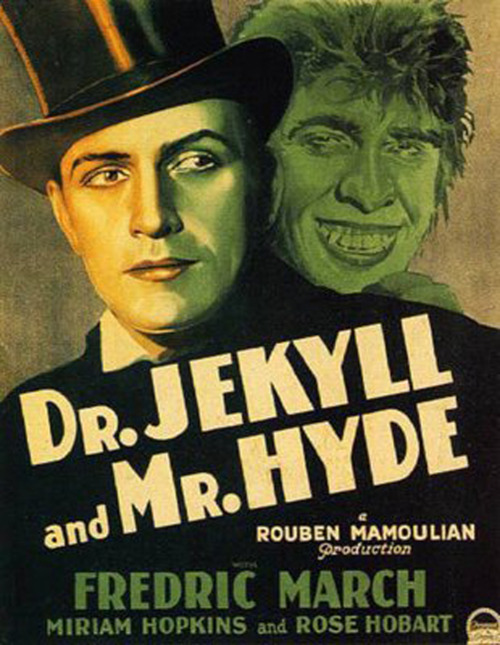

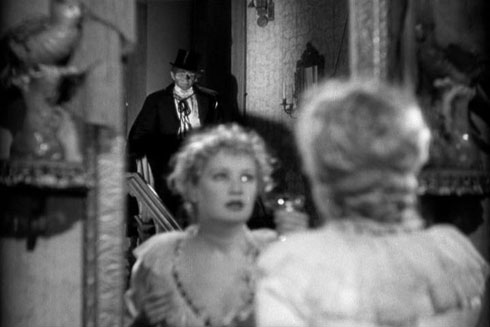
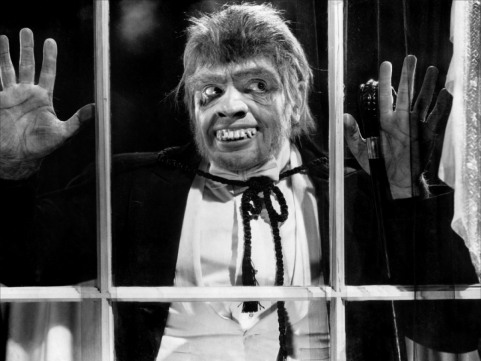

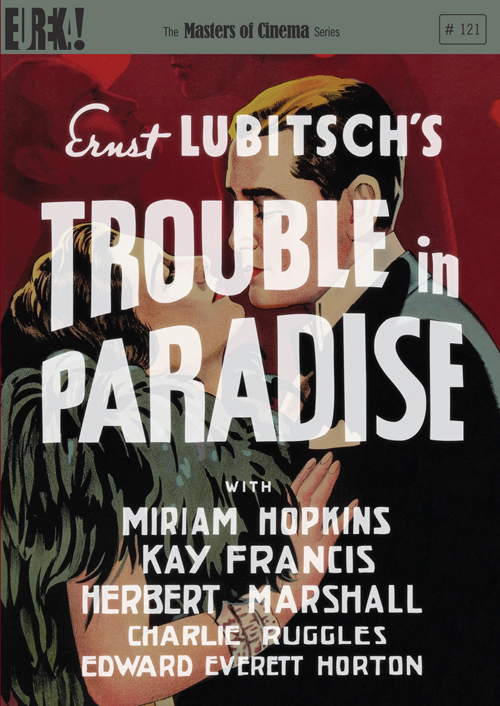
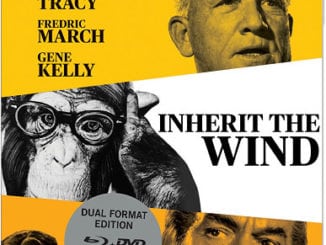
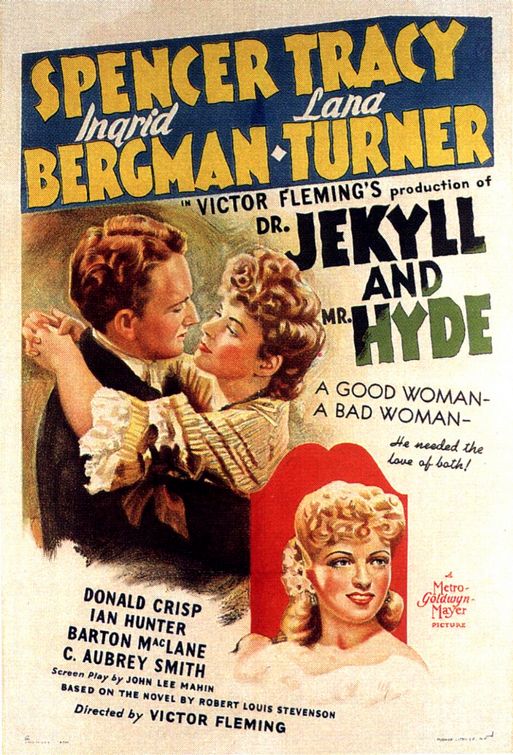
Be the first to comment